Fighting malnutrition around the world
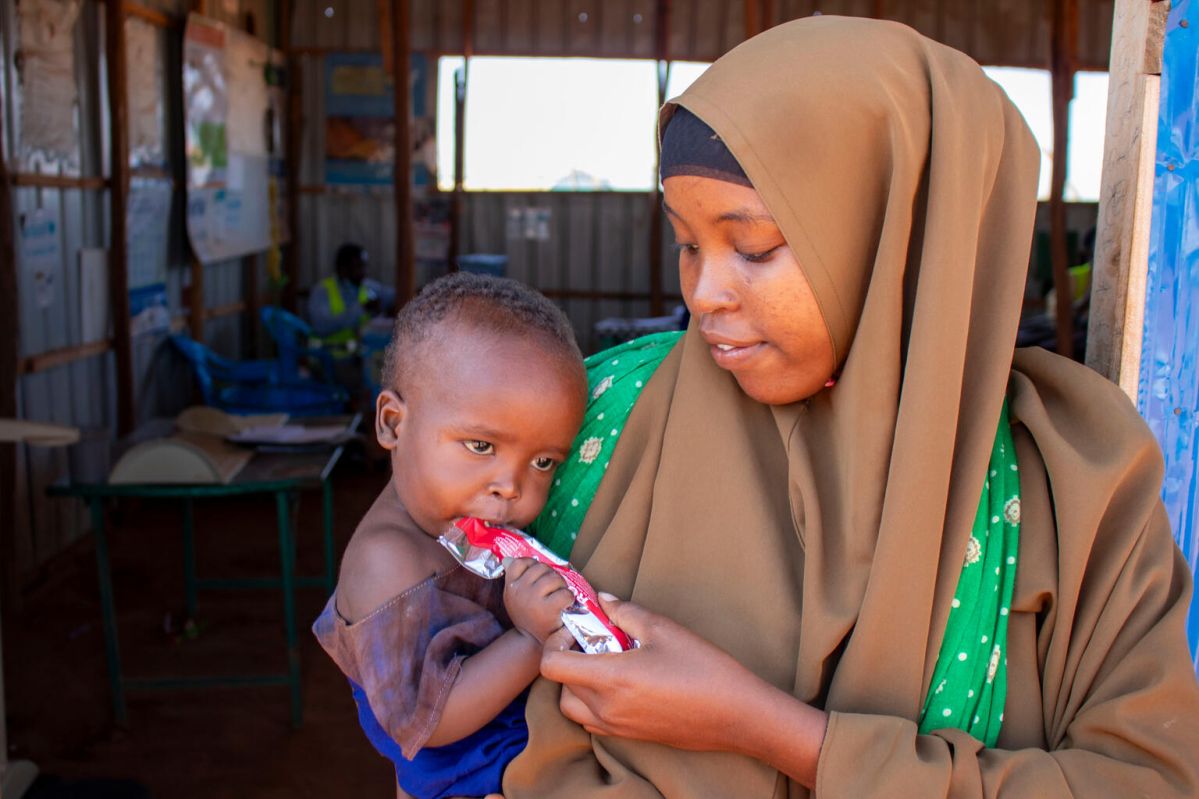
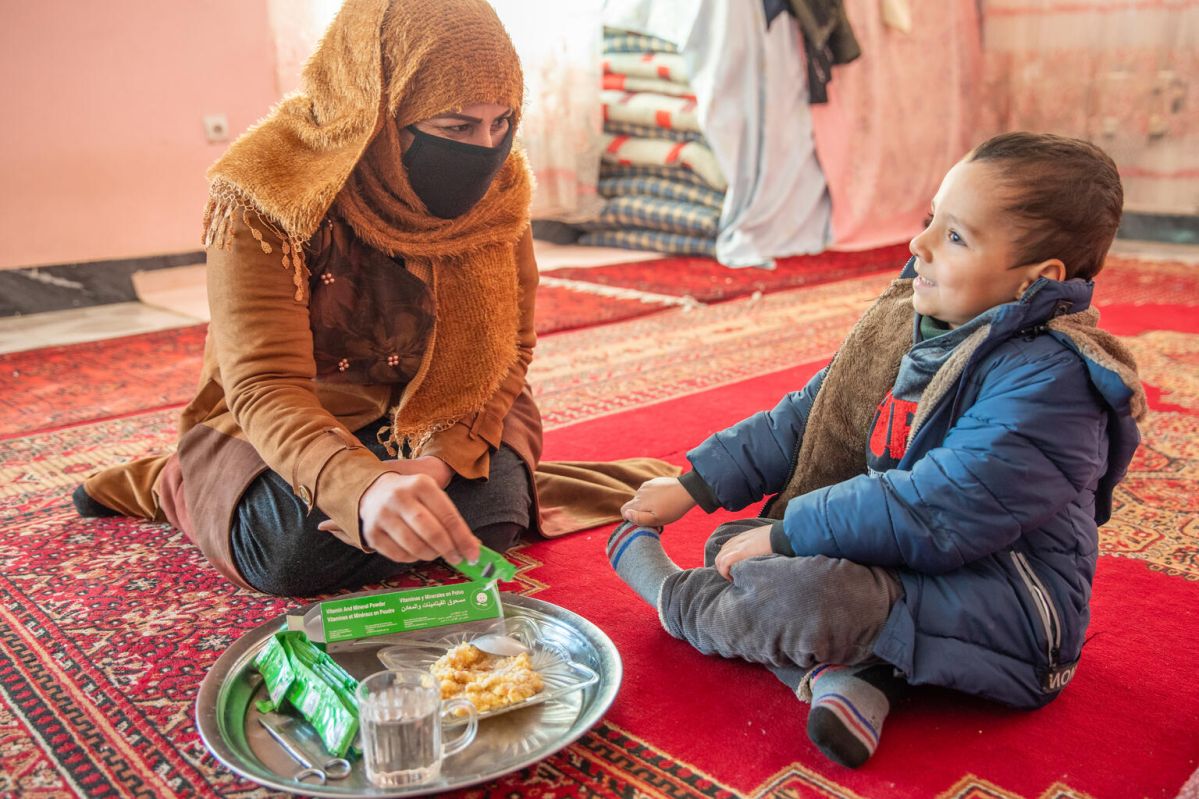
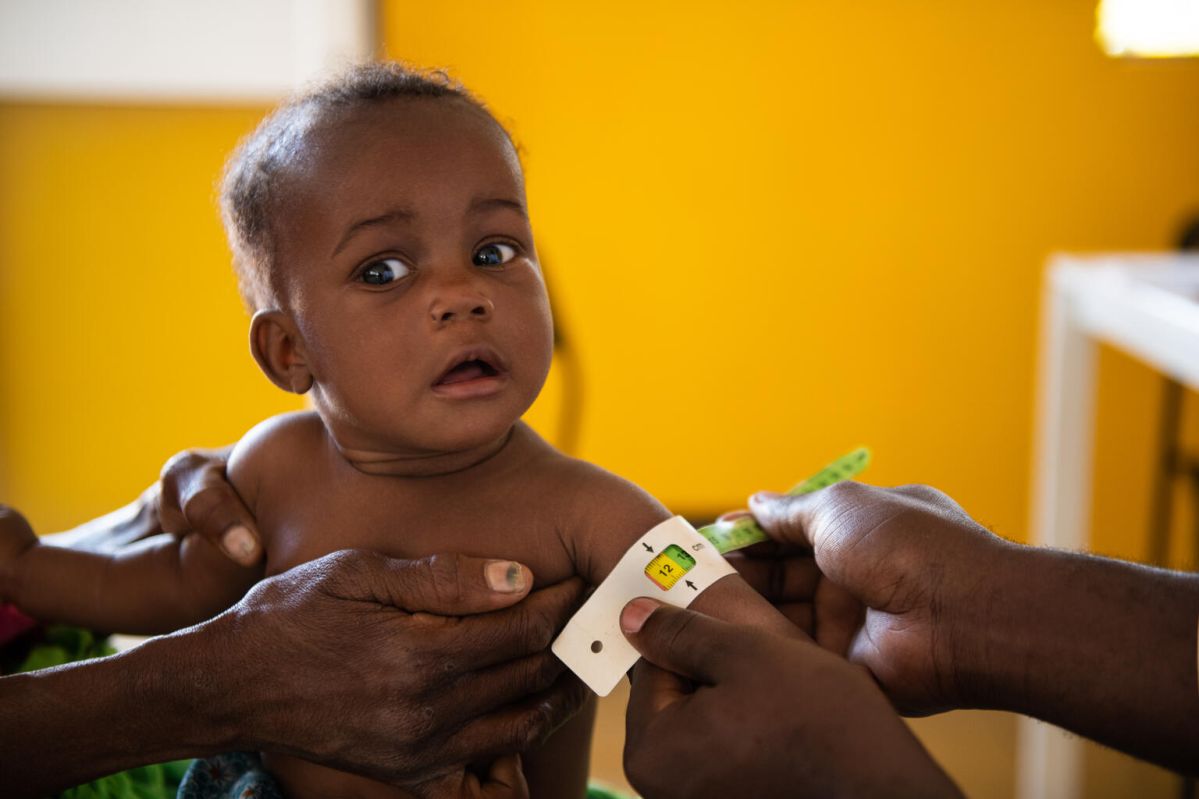
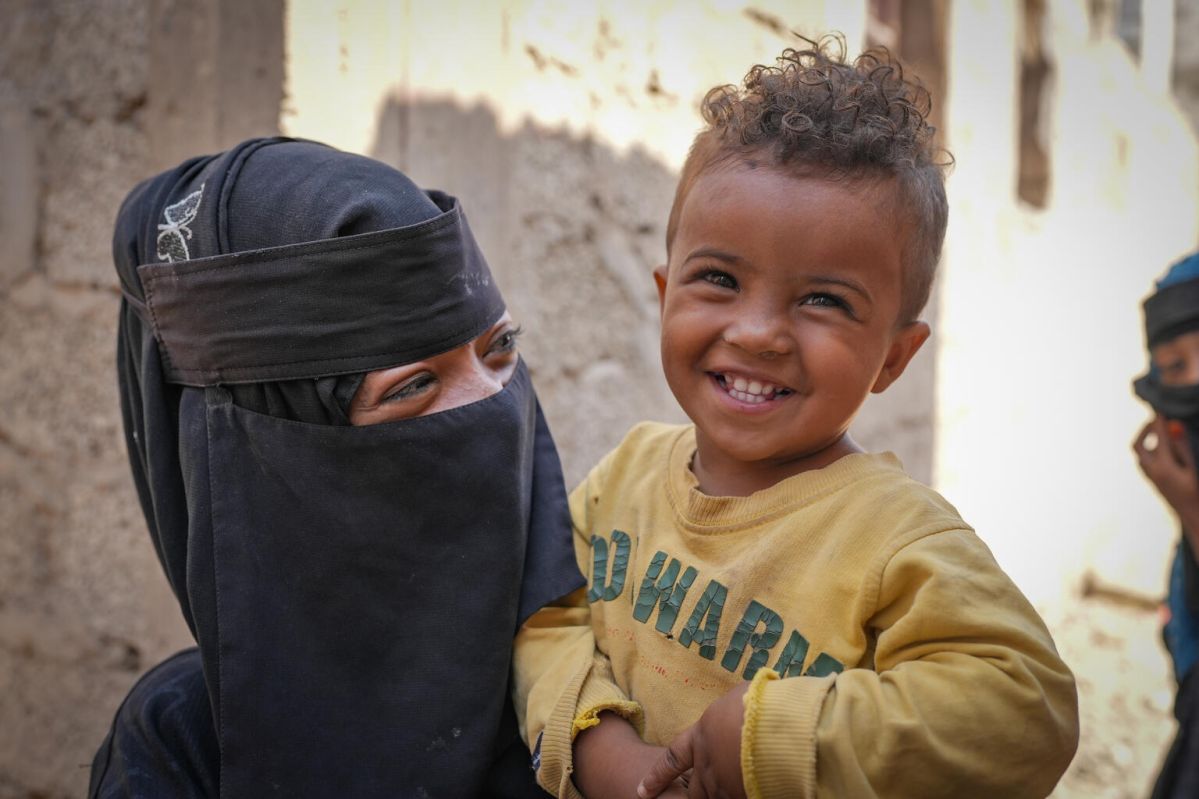
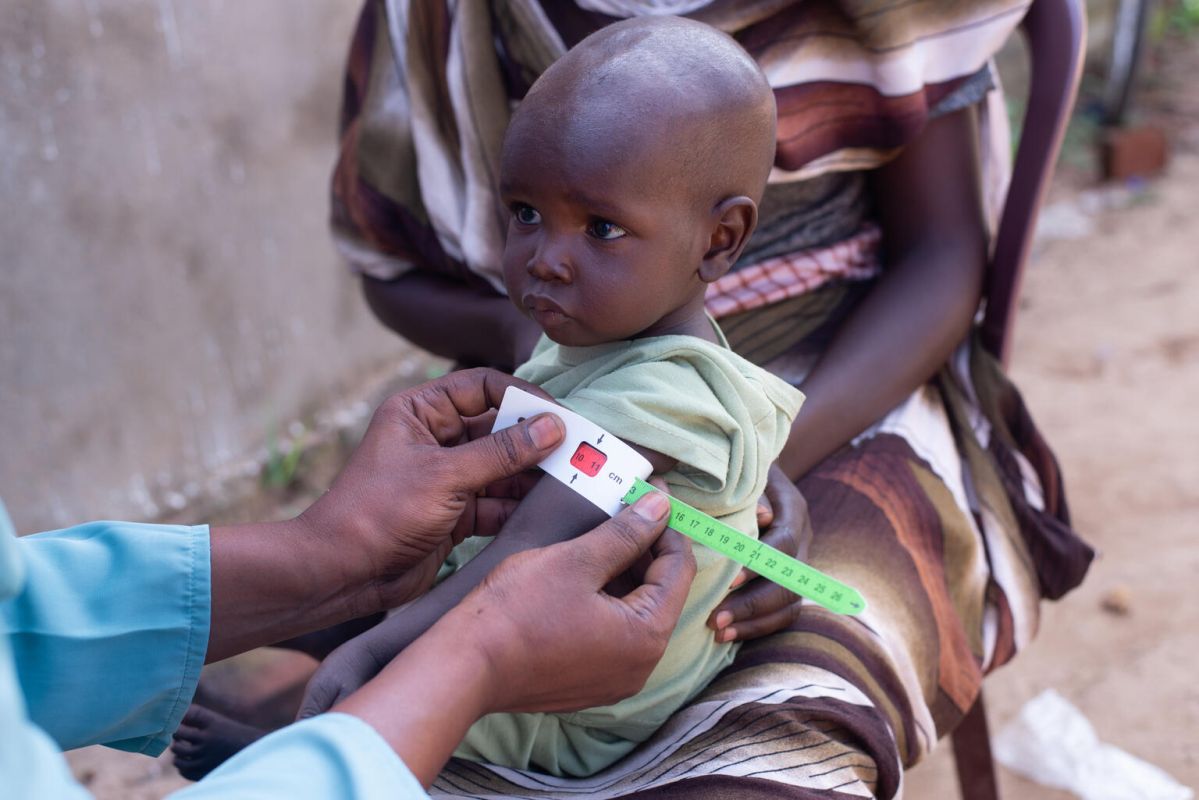
UNICEF teams are working tirelessly across Yemen, Sudan, Gaza, and other affected regions to deliver:
- Ready-to-use therapeutic food (RUTF) to treat severely malnourished children.
- Emergency medical supplies and vaccinations to protect fragile immune systems.
- Clean water and sanitation to prevent deadly diseases like cholera.
- Support for families, helping them rebuild and regain stability.
Every child deserves food, healthcare, and hope. Every child deserves a future.
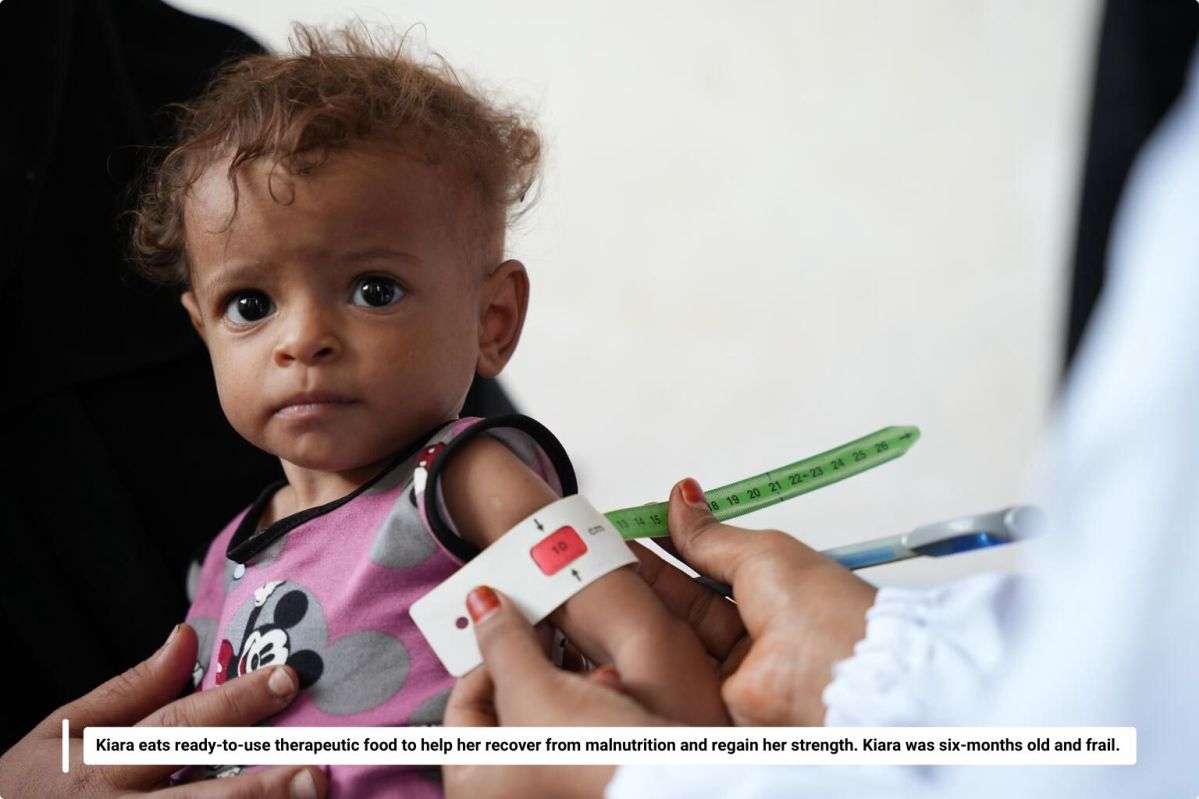
We don’t have enough food for Kiara. Usually, she has no more than two meals a day,” her mother Aisha said.
Aisha’s husband, Mazen, is a fisherman, but the ongoing conflict and restrictions on fishing areas have made it nearly impossible for him to provide for his family.
When Kiara developed severe diarrhea and a persistent fever, Aisha rushed her to the nearest health centre. Her baby was suffering from severe acute malnutrition (SAM) with complications.
With the help of a UNICEF-supported Therapeutic Feeding Centre, Kiara was given urgent medical care, including ready-to-use therapeutic food (RUTF). Over the course of two months, Aisha witnessed an incredible transformation.
“Her hand was the size of my finger, and she could not even sit. But now, she can sit and move around,” Aisha said.
Kiara’s story is one of thousands.
Yemen has one of the highest rates of child malnutrition in the world. Over 600,000 children under five suffer from acute malnutrition, and 120,000 of them are in critical condition. But this crisis is not just in Yemen.
More than 20 months of conflict have sent malnutrition rates soaring, leaving Sudan facing an unprecedented hunger crisis. Some 3.2 million children under the age of five are likely to experience acute malnutrition in 2025, of whom more than 770,000 children are expected to suffer severe acute malnutrition- the most immediate, visible and life-threatening form of malnutrition.
Families in the Gaza Strip face ongoing hunger, with IPC reports (25 June and September) finding that more than 90 per cent of the population – 1.95 million people- face acute food insecurity.
These children and their families need your support. Please make a donation today to help UNICEF continue delivering lifesaving supplies and services to children in crisis.
Every moment matters. Help us deliver hope before it’s too late.